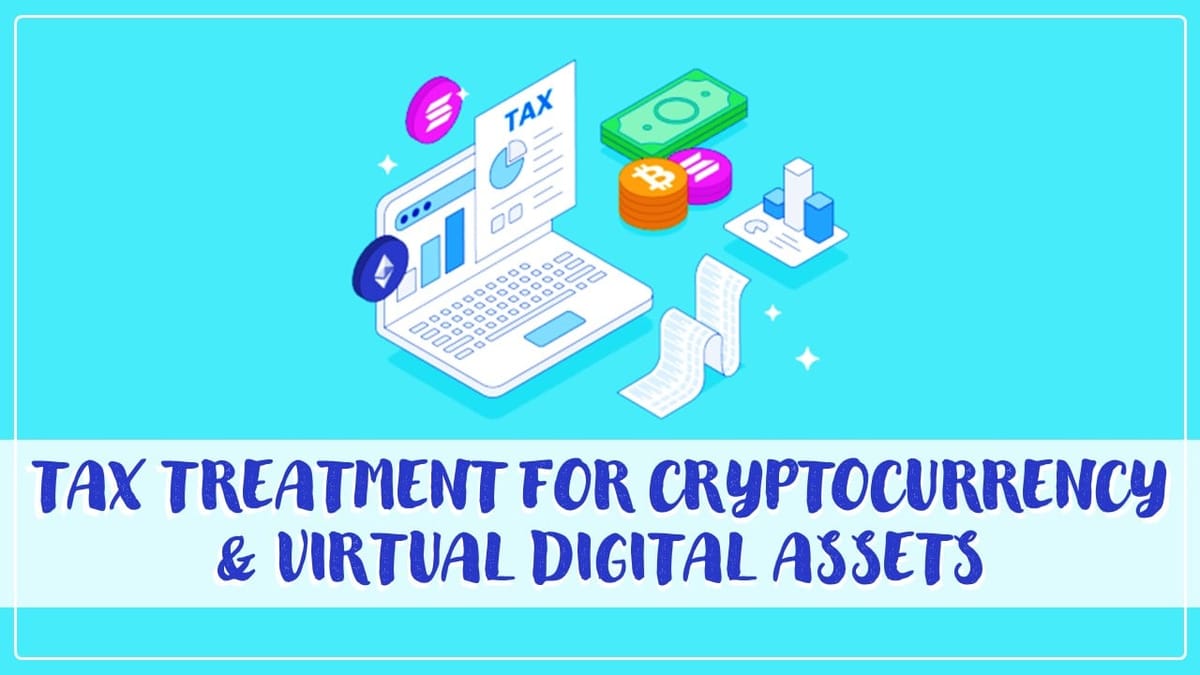Reetu | Dec 14, 2023 |

CBIC seek more time for deciding appropriate Tax treatment for Crypto
The Tax Authorities are expected to request additional time to develop a suitable proposal for the proper tax treatment for the cryptocurrency and virtual digital asset sectors, which is why the GST levy deadlock is still in place, as per the sources.
The Tax Research Unit under CBIC was given the responsibility and requested to write a report by the GST Council during its most recent meeting, which took place in October.
However, sources say that “this report is yet to be finalised, as discussions are still underway, and the tax research unit is currently examining whether to treat cryptocurrency/virtual digital assets as financial instruments, goods, or services.”
The tax officials are having trouble completing a proposal for the GST Council for the second time.
The sector now pays 18% GST on the platform fee for enabling users to transact, with no GST applied to the value of the tokens, virtual digital assets, or cryptocurrencies.
In addition to 18% GST on transaction fees, the council had urged tax authorities to determine if claims pertaining to virtual digital assets or cryptocurrencies are actionable and should be subject to 28% GST.
A group of state officials from Karnataka and Haryana was previously constituted and entrusted with presenting a recommendation to the Chandigarh GST Council in June 2022.
Nevertheless, the panel of state GST officers from Karnataka and Haryana informed the council in the October GST meeting—more than a year after the council was established—that they were unable to provide a report.
As specialists regularly monitor this area, they believe that the government should work toward a well-balanced clarity with specific circumstances when establishing an appropriate policy for the industry.
According to a tax expert, “To properly understand the impact of GST, new-age industries like virtual digital assets and cryptocurrencies require a thorough comprehension of minute transaction-level circumstances. Experts and participants from the trade and industry can effectively do this. These two factors may make it possible for a complete and workable taxation system for cryptocurrencies and virtual digital assets in a dynamic and quickly changing environment. Aims should be set towards preventing rushed or incomplete conceptualizations of the same.”
“Because the supplies in these situations could be B2B, B2C, or C2C, and there is a good chance that there won’t be any tax compliance with regard to C2C transactions, the taxation of such transactions becomes complicated. One possible resolution would be to impose taxes on the transactions using the reverse charge mechanism on the asset’s margin. Several issues, including revenue leakage, credit chain disruption, and regulatory load, will be solved by taxing under the reverse charge on the margin. Additionally, this will guarantee that the supply is only billed at the point of value addition, preventing tax cascading,” another tax expert suggested.
Expressing similar sentiments, an Industry indirect tax expert said, “Because these transactions can take many different forms, taxing cryptocurrencies and virtual digital assets is a complicated process. To prevent needless disagreements in this developing field, the government must provide clear clarification on several issues, such as whether supplies are goods or services, the rate of GST, the location of supply, exemptions, etc.”
What specifically comes out of these conversations and the ultimate form of the policy approved by the GST Council remains to be seen.
In case of any Doubt regarding Membership you can mail us at contact@studycafe.in
Join Studycafe's WhatsApp Group or Telegram Channel for Latest Updates on Government Job, Sarkari Naukri, Private Jobs, Income Tax, GST, Companies Act, Judgements and CA, CS, ICWA, and MUCH MORE!"